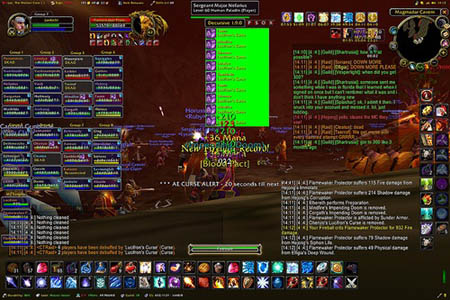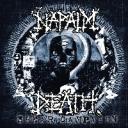Like many MMO players my first (AAA) MMO was World of Warcraft, and I remember distinctly just how excited I was as I finished creating my character, hovered my cursor over the ‘enter world’ button and, with some trepidation left, clicked. After a deep breath, I think I said something outloud to my girlfriend along the lines of ‘Ok, I’m going in’. The music kicked in with its now overly familiar drumroll the loading screen appeared and the empty bar began to fill up and I was finally dropped into the vivid orange environs of The Valley of Trials. It’s difficult to describe in words how thrilling my pre-70 days in Azeroth were, I was playing pretty casually and didn’t join a guild until I’d explored by myself for a while. Even a six hour slog through the Wailing Caverns with the ‘PUG from hell’ didn’t damage the feeling that I was exploring a ‘whole new world’. One of WoWs greatest achievements in my opinion was the way in which virtually every ‘zone’ felt so different and unique, it hardly mattered that the climates of neighbouring zones were often inappropriate, instead it just increased the anticipation you felt about going to the next zone. Even relatively quite areas like Dustwallow Marsh and Desolace oozed atmosphere and danger. It wasn’t just the zones that made Azeroth so awe inspiring: the first time I visited Orgrimmar I literally just had to stop and stare, it was like seeing something out of the coolest dream I’d never had, walls that must have been hundreds of feet high, festooned with spikes and dragon bones from which hung huge red banners. And then I saw ThunderBluff…
Having hit level 70 some time ago I see the world through very different eyes. I’ve seen pretty much every zone (having rolled Alliance characters just so I could look around their starting areas, have been into most instances outside of raiding content and completed the majority of quests relevant to my class. Azeroth, or rather Outland, as that’s where I spend most of my time, isn’t so much a land of adventure any more but an optimisation project. Completing daily quests isn’t a matter of how or if, but how quickly and efficiently I can do them. From there the next task is to loacte the best location to farm, based on proximity to where I completed my dailies, auction house prices and number of other players operating in the same area.
It brings to mind an interview I read recently on Ugo Trade with Cory Doctorow, in which he discusses the internet as a ‘reverse surveillance’ society: “Surveillance is all about when people in authority know a lot about you. Instrumentation is when you know a lot about the world”. And coincidentally he uses Joi Ito’s World of Warcraft screenshot to demonstrate what he means.
In this image the actual 3-dimensional world is almost entirely obscured by abstracted information (you can see the full-size image here). This image reminds me of the metaphor for cognition Maturana and Varela use in their book The Tree of Knowledge: Biological Roots of Human Understanding. They argue that perception isn’t constructed through internal representation of the outside world like a camera obscura, but is governed by an autonomous nervous system that is constantly attempting to maintain a balance that maintains life. They use the metaphor of a person who knows the world only from the inside of a submarine (i.e. no windows) who knows the world only through the dials and measures within the submarine, such as fuel gauges, depth monitors and the like and responds to the world through these abstract mediums. Raiding being one of the most intensive online activities there is, this example is of course very extreme, but conceptually it’s no different from ‘feeds’. Feeds don’t just filter web content, they rationalise it – they can be ordered into categories, they can show images and text or just titles and so on. You can argue that social networking sites do something similar with one’s friends, Youtube does something similar with video and so on.
The interesting thing about what Cory suggests is of course its ‘Bottom-Up’ nature. Traditionally the rhetoric of rationalisation – science, industrialisation, capitalism etc – have been ‘Top-Down’ concepts enforced on society from above and his point is that this is exactly what attracts people to virtual worlds. At the same time this rationalisation of virtual space also removes the ‘romance’ of the experience, the escapism and immersiveness, although there is no doubt that the rationalisation process can be equally as immersive as anyone who has participated in a raid encounter will tell you. However many gamers find rationalisation frustrating, sometimes players want to feel theyhave just saved the world from a demonic invasion, rather than just successfully completing a series of pre-determined tasks. Which is something I’ll be covering in my next post…



